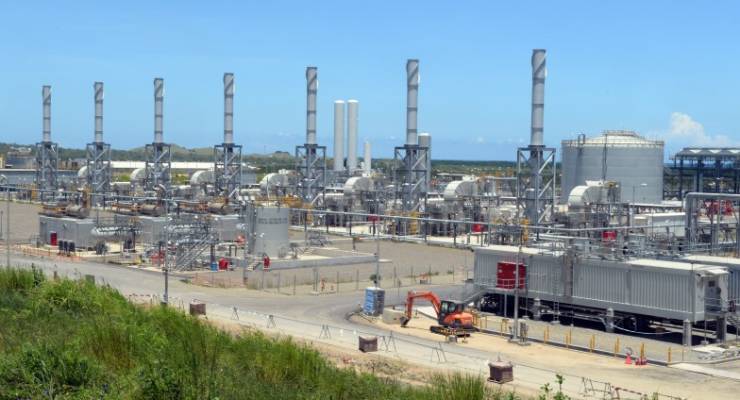
The government’s new emissions road map is built on a lot of assumptions. Scott Morrison and Angus Taylor have woven a narrative about gas and “emerging technologies” that allows them to avoid talking about renewables.
But underlying this narrative are a whole lot of claims experts say come dangerously close to misinformation.
“[Morrison] is using language very carefully in ways that if you pull it apart it is technically correct but creates a misleading impression,” the Grattan Institute’s Tony Wood says.
“He just doesn’t give you the whole story. He gives you the part of the story he wants to present. It’s careful political positioning.”
Crikey has picked apart the government’s main talking points to come up with some areas where the narrative could come unravelled.
Carbon capture and storage (CCS) is viable
Frank Jotzo, director of the Centre for Climate and Energy Policy at ANU, said although CCS technically works, the idea of it having widespread applications is a furphy.
“There are very few applications for CSS around the world,” he says. “In the very large majority of cases, CCS presents a huge additional cost.
“We would not see widespread adoption of CCS in the power industry. That ship has sailed … Instead, the role for CCS would be for quite specialised applications, potentially cement production, fertiliser production.”
Gas will reduce emissions
Morrison has declared reducing emissions should be the goal and it doesn’t matter how we get there. He’s shifted the conversation away from renewables to “low emissions”, allowing him to focus on gas — a fossil fuel — as a transitional energy source.
While experts say it’s true gas will play a role in the transition away from fossil fuels, the idea that we need more gas is not.
“The role of gas will be important but it’s not the main story,” Wood says. “Gas is a fossil fuel and what we shouldn’t be doing is investing in more fossil-fuel infrastructure.”
Jotzo said the government’s gas claims were deliberately misleading.
“What’s true is that gas has a role in transition to renewable energy,” he says. “We’re using a lot of gas in industry — that’s not going to go away overnight.
“What’s wrong is to assert that there is a growing role in gas. In the shift to a clean energy system, gas will retain some sort of role in the gradual transition, but that is a diminishing role not an increasing role.
“There’s really no need to expand the gas production system.”
Jotzo said the claim gas could lead to a recovery or a jobs boom was “simply nonsense”.
“There are almost no jobs in [gas] … If we were going to see a massive boom in gas-based manufacturing, we should be seeing it right now. And we’re not seeing it.”
Solar and wind can ‘stand on their own two feet’
Morrison claims solar and wind are well established, commercially viable and have scale, and therefore can operate without much further government assistance.
They do not feature in Taylor’s five “priority technology” areas.
But Tom Swann, a senior researcher at The Australia Institute, said renewable energy needs government support to speed up the transition to lower emissions.
“Renewables investment has collapsed, again, due to policy chaos,” he says.
“The solution the government is proposing is actively creating the problem, by actively intervening to get in the way of the transition, instead of speeding it up.”
Jotzo agrees: “We need to look at what might hold up that transition to renewables. The investment case for many of these projects is increasingly shaky. What we need is ultimately a broad-based incentive for the uptake of [renewables].”
We need to focus on ‘new technology’
The word technology is again front and centre of the government’s energy plan.
Jotzo says this is misleading: “The problematic bit is the word ‘new’. There are no new technologies that need to be developed to be decarbonised. The road map to decarbonisation is really clear and can be done on existing technologies.”
Swann said using the word technology shifted the messaging away from government action.
“[A] technology-driven approach was the Howard government’s excuse for having no policy,” he says. “It didn’t work and was called out as an international embarrassment.”








Crikey is committed to hosting lively discussions. Help us keep the conversation useful, interesting and welcoming. We aim to publish comments quickly in the interest of promoting robust conversation, but we’re a small team and we deploy filters to protect against legal risk. Occasionally your comment may be held up while we review, but we’re working as fast as we can to keep the conversation rolling.
The Crikey comment section is members-only content. Please subscribe to leave a comment.
The Crikey comment section is members-only content. Please login to leave a comment.